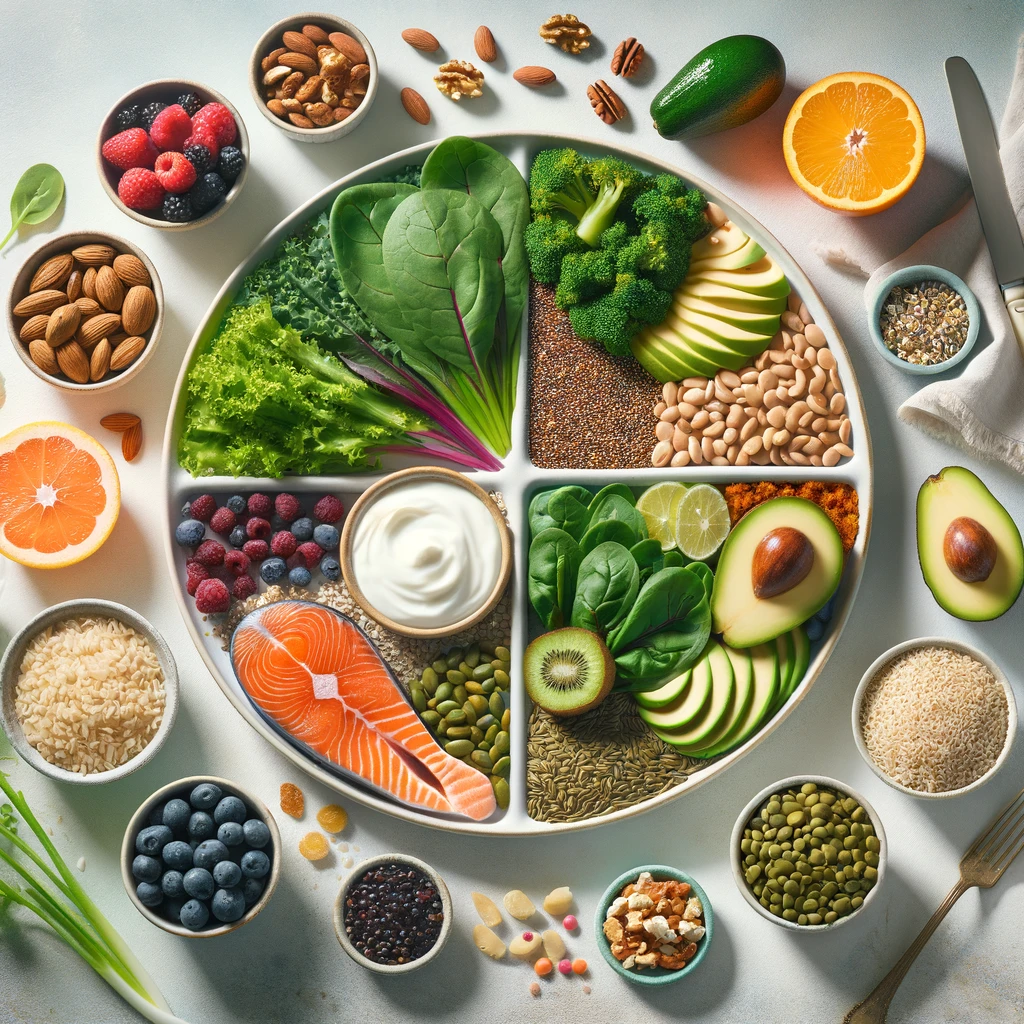Managing blood sugar levels is crucial for individuals dealing with diabetes or other blood sugar-related conditions. A balanced diet can play a significant role in controlling blood sugar levels, helping to mitigate health risks associated with high blood sugar and improving overall well-being. This article will discuss the best foods for blood sugar treatment, emphasizing those that contribute to stable blood glucose levels.

Whole Grains
Whole grains are an integral part of a blood sugar-friendly diet. Unlike refined grains, whole grains contain all parts of the grain, including the fiber-rich outer layer. This fiber slows the absorption of sugar into the bloodstream, preventing spikes in blood sugar levels. Examples of whole grains include quinoa, brown rice, whole oats, barley, and whole grain breads and pastas. Incorporating whole grains into your diet can help maintain steady blood sugar levels throughout the day.
Leafy Greens
Leafy green vegetables are low in calories and carbohydrates, making them an excellent choice for blood sugar management. Vegetables like spinach, kale, and Swiss chard are packed with vitamins, minerals, and antioxidants. They also have a low glycemic index, meaning they have a minimal impact on blood sugar levels. Regular consumption of leafy greens can contribute to blood sugar control and overall health.
Fatty Fish
Fatty fish, such as salmon, mackerel, sardines, and trout, are rich in omega-3 fatty acids, which are beneficial for heart health and blood sugar control. These healthy fats can improve insulin sensitivity, reduce inflammation, and lower blood sugar levels. Incorporating fatty fish into your diet a few times a week can help manage blood sugar levels and reduce the risk of heart disease.
Legumes
Legumes, including beans, lentils, and chickpeas, are excellent sources of fiber, protein, and complex carbohydrates. They have a low glycemic index, which means they cause a slower, more gradual increase in blood sugar levels compared to high-glycemic foods. Adding legumes to your meals can help keep you feeling full longer, preventing overeating and aiding in blood sugar control.
Nuts and Seeds
Nuts and seeds are high in fiber, healthy fats, and protein. They can help maintain steady blood sugar levels when consumed in moderation. Almonds, walnuts, chia seeds, and flaxseeds are particularly beneficial for blood sugar control. They can be eaten as snacks, added to salads, or used in cooking and baking. Remember, while nuts and seeds are healthy, they are also calorie-dense, so it’s important to monitor portion sizes.
Berries
Berries, such as strawberries, blueberries, raspberries, and blackberries, are rich in vitamins, antioxidants, and fiber. They have a lower glycemic index compared to other fruits, making them less likely to spike blood sugar levels. Berries can be a delicious and healthy addition to a blood sugar-friendly diet, whether eaten fresh, frozen, or as part of a dish.
Greek Yogurt
Greek yogurt is a nutritious dairy option that can be beneficial for blood sugar control. It’s higher in protein and lower in sugar than regular yogurt, helping to slow the digestion of carbohydrates and reduce blood sugar spikes. Opt for plain, unsweetened Greek yogurt to avoid added sugars, and enjoy it as a snack or breakfast option with some berries and nuts.
Avocado
Avocado is rich in healthy fats and fiber, both of which are beneficial for blood sugar control. The monounsaturated fats in avocado can help improve insulin sensitivity, while the fiber can help stabilize blood sugar levels. Adding avocado to salads, sandwiches, or as a side dish can contribute to a balanced, blood sugar-friendly diet.
Citrus Fruits
Citrus fruits, such as oranges, lemons, limes, and grapefruits, are good sources of vitamins, fiber, and antioxidants. They have a low glycemic index and can help slow the absorption of sugar into the bloodstream. Including citrus fruits in your diet can help maintain steady blood sugar levels while providing a refreshing and nutritious snack.
Sweet Potatoes
Sweet potatoes are a healthier alternative to regular potatoes, with a lower glycemic index and higher fiber content. They are also rich in vitamins A and C. Consuming sweet potatoes in moderation can help control blood sugar levels while adding a delicious and versatile vegetable to your diet.
Conclusion
Managing blood sugar levels through diet involves choosing foods that help maintain steady glucose levels and prevent spikes. Whole grains, leafy greens, fatty fish, legumes, nuts and seeds, berries, Greek yogurt, avocado, citrus fruits, and sweet potatoes are all excellent choices for those looking to control their blood sugar through dietary means. Remember, it’s also important to balance these foods with physical activity and regular medical check-ups. Consult with a healthcare provider or a dietitian to create a meal plan that’s tailored to your individual health needs and goals.




